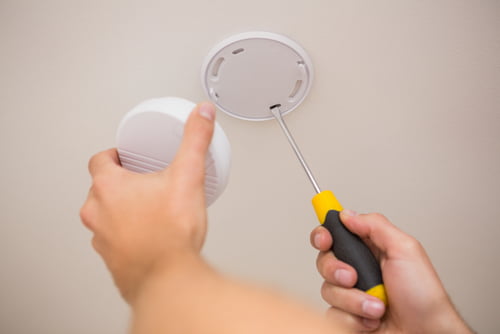
We like to think that we can sense and avoid the dangers around us. Hot stove? Don’t touch. Wet floor? Walk around. Broken glass? Avoid. Smells rotten? Don’t eat. But our sense aren’t perfect. For example, we all know that our atmosphere and the gasses we inhale and exhale are there, but it’s pretty difficult to sense them. The air doesn’t taste, smell, sound, feel, or look like anything to us. That’s okay because Earth’s air and atmosphere doesn’t harm us, but what about when they do? So why is carbon monoxide dangerous?
Carbon monoxide or CO gas like oxygen (O2), Nitrogen (N2), and the other gasses that make up our atmosphere is very difficult for the human body to detect. Like air, we can’t really sense it. Unlike air, too much CO will quickly cause a lot of problems.
Carbon monoxide is a byproduct of incomplete combustion. The most likely sources for CO poisoning are vehicle exhaust, heaters, and cooking appliances that use fossil fuels as their power source. Because of our inability to sense CO gas before symptoms and complications arise, it is extremely important to have a carbon monoxide detector in your house, garage, and any other indoor area. As with your smoke alarm, it’s also important to check it once a month and to replace the batteries annually.
The problem with carbon monoxide is that the hemoglobin in our red blood cells would rather bind to the CO than with the oxygen our body needs. This means that our red blood cells cannot carry oxygen to our tissues and organs; as a result our body slowly begin to die from oxygen deprivation. The early symptoms of carbon monoxide poisoning help to illustrate this and include lightheadedness, confusion, headaches, and vertigo. While a headache isn’t something to get too worked up about, a high enough concentration of CO gas can and will kill a person. That’s why carbon monoxide is dangerous.
Interestingly the human body is remarkably adaptable and can survive chronic exposure to CO gas at a low concentration. The side effects of this usually include depression, frequent confusion, and memory loss. Do you need your CO detector tested or do you want one installed? The experts at Plumbing Paramedics can help! Call us today at (403) 452-2911.
Call us at (403) 452-2911 or Book Now an appointment.
Simple HVAC Maintenance Tips from Our Experts
Maintaining your HVAC system is essential to keep your home comfortable and energy-efficient. Regular maintenance not only ensures your system runs smoothly but also extends its lifespan. Ignoring HVAC upkeep can lead to higher [...]
Common HVAC Repair Issues Our Technicians Solve
HVAC systems are critical for maintaining a comfortable environment in your home. However, like all mechanical systems, they can experience problems that require timely HVAC repair. Knowing what to expect and recognizing early signs of [...]
Comprehensive HVAC Services Provided by Our Professionals
Maintaining a comfortable and efficient home environment requires a reliable HVAC system. Whether you're installing a new unit, keeping up with routine maintenance, or addressing unexpected repairs, the expertise of our professionals ensures your [...]






